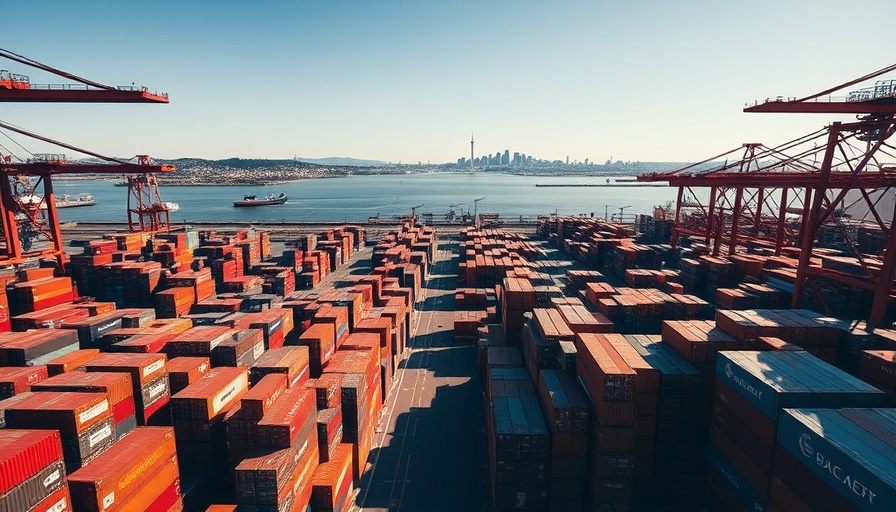
The Ripple Effect of Trump’s Tariffs on American Households
As President Donald Trump's tariffs are set to reshape the economic landscape of the United States, a recent analysis reveals a troubling reality. The tariffs, pushed during his second term, are projected to disproportionately affect lower-income households. In fact, individuals belonging to the bottom 20% income bracket, which consists of those earning less than $29,000 a year, are expected to face a tax increase equivalent to 6.2% of their annual income. Conversely, those in the top 1%, making over $915,000 yearly, would see a much smaller tax rise of merely 1.7% of their income. This stark disparity highlights how economic policies can deepen existing inequalities.
Understanding Tariffs: Taxes in Disguise
It’s essential to recognize that tariffs function as a tax on imported goods, which importers pay but often pass down to consumers. The Heritage Foundation has characterized tariffs as a "tax on Americans by another name." They argue that this tax increases prices on essential goods such as food and clothing, which form a larger portion of a low-income household’s budget. For families already struggling to make ends meet, higher prices due to tariffs can significantly affect their quality of life.
Long-Term Implications: A Systematic Burden
Federal policymakers must consider the long-term effects of these tariffs. While short-term revenue generation from tariffs might seem beneficial, the costs disproportionately borne by the poor indicate a flawed strategy that could widen the gap between the wealthy and low-income earners. If tariffs remain enforced without corresponding considerations for lower-income families, the social fabric of American society may fray even further, leading to greater economic disparities.
Future Predictions: What Lies Ahead
Moving forward, it’s crucial to analyze potential shifts that may arise due to these tariffs. If businesses decide to raise prices significantly, consumer spending will likely be impacted, causing a ripple effect in the broader economy. The most vulnerable populations could find themselves trapped in a cycle of poverty, struggling with increasing living costs while stagnant or reducing income opportunities.
Your Role: Understanding Economic Policies
As consumers, it's vital to stay informed about the implications of national policies on our daily lives. Understanding how tariffs affect the products we buy allows for more informed decisions as consumers and responsible citizens. Encouraging discussions around such policies can foster a more inclusive economic dialogue and hold leaders accountable for their impact on the community.
In conclusion, while tariffs might be presented as a necessary economic strategy, we must consider their true costs and who truly bears the burden. Staying informed and advocating for equitable policies could pave the way for a fairer economic system that serves all segments of society, not just the wealthiest.
 Add Row
Add Row  Add
Add 




 Add Row
Add Row  Add
Add 

Write A Comment